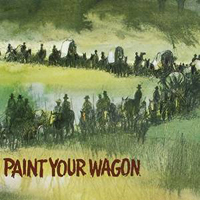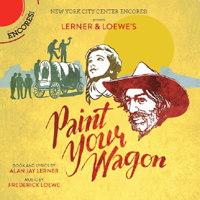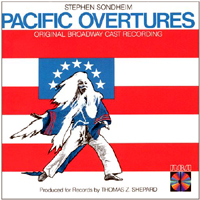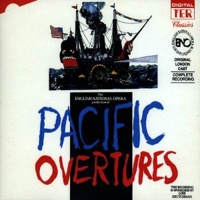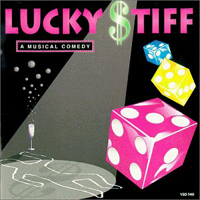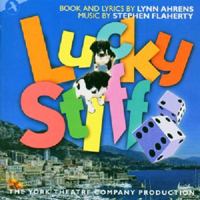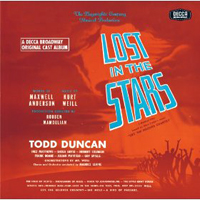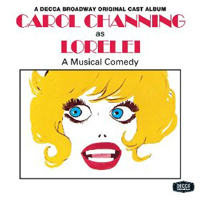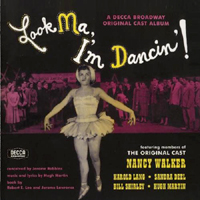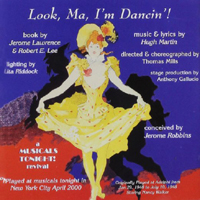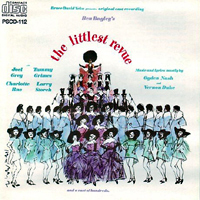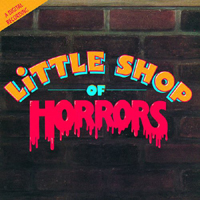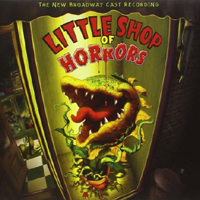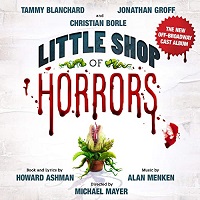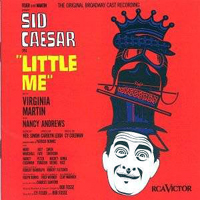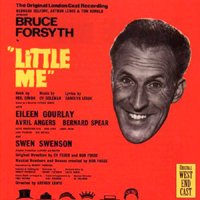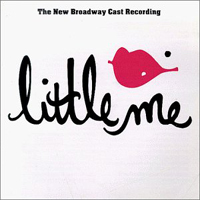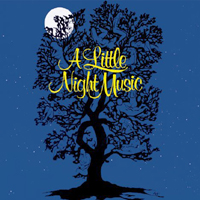 Original Broadway Cast, 1973 (Columbia/Sony)
Original Broadway Cast, 1973 (Columbia/Sony)  (5 / 5) A Little Night Music is emblematic of composer-lyricist Stephen Sondheim’s work in that it sounds very different from his other scores and yet is clearly the creation of one of the musical theater’s true geniuses. Based on Ingmar Bergman’s film Smiles of a Summer Night, with a book by Hugh Wheeler, the show features songs that are gorgeously romantic, witty, and heartbreaking by turns, all of them benefiting greatly from Jonathan Tunick’s lush orchestrations. Though excellent overall, the cast album is somewhat disappointing in that the vocal limitations of Glynis Johns as Desirée Armfeldt and Patricia Elliott as Countess Charlotte prevent them from giving fully satisfying performances of their songs. Elliott sings her lines in “Every Day a Little Death” and “A Weekend in the Country” with little or no nuance; Johns gives oddly flat readings of her semi-spoken lines in “You Must Meet My Wife,” and although her rendition of “Send in the Clowns” is heartfelt, she struggles with some of the notes because the bulk of the music lies right around her register break. However, the rest of the cast is superb. Len Cariou and Laurence Guittard sing beautifully as Frederik Egerman and Carl-Magnus Malcolm, respectively. Victoria Mallory brings a resplendent soprano to the role of Anne Egerman, yet she manages to sound convincingly young, as the character must be for the plot of this show to make sense. Ditto tenor Mark Lambert as Henrik, whose singing in “Later” and “A Weekend in the Country” is perfect in both musical and dramatic terms. Hermione Gingold’s performance of Madame Armfeldt’s “Liaisons” is full of personality, and a major highlight of the recording is D’Jamin-Bartlett’s rendition of one of the best, smartest, most deeply affecting songs in the score, “The Miller’s Son.” — Michael Portantiere
(5 / 5) A Little Night Music is emblematic of composer-lyricist Stephen Sondheim’s work in that it sounds very different from his other scores and yet is clearly the creation of one of the musical theater’s true geniuses. Based on Ingmar Bergman’s film Smiles of a Summer Night, with a book by Hugh Wheeler, the show features songs that are gorgeously romantic, witty, and heartbreaking by turns, all of them benefiting greatly from Jonathan Tunick’s lush orchestrations. Though excellent overall, the cast album is somewhat disappointing in that the vocal limitations of Glynis Johns as Desirée Armfeldt and Patricia Elliott as Countess Charlotte prevent them from giving fully satisfying performances of their songs. Elliott sings her lines in “Every Day a Little Death” and “A Weekend in the Country” with little or no nuance; Johns gives oddly flat readings of her semi-spoken lines in “You Must Meet My Wife,” and although her rendition of “Send in the Clowns” is heartfelt, she struggles with some of the notes because the bulk of the music lies right around her register break. However, the rest of the cast is superb. Len Cariou and Laurence Guittard sing beautifully as Frederik Egerman and Carl-Magnus Malcolm, respectively. Victoria Mallory brings a resplendent soprano to the role of Anne Egerman, yet she manages to sound convincingly young, as the character must be for the plot of this show to make sense. Ditto tenor Mark Lambert as Henrik, whose singing in “Later” and “A Weekend in the Country” is perfect in both musical and dramatic terms. Hermione Gingold’s performance of Madame Armfeldt’s “Liaisons” is full of personality, and a major highlight of the recording is D’Jamin-Bartlett’s rendition of one of the best, smartest, most deeply affecting songs in the score, “The Miller’s Son.” — Michael Portantiere
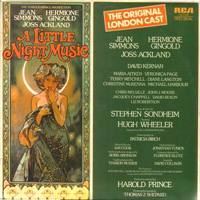 Original London Cast, 1975 (RCA)
Original London Cast, 1975 (RCA)  (3 / 5) This recording boasts fewer legit voices than the Broadway album, with even some of the Liebeslieder singers falling short in this regard. Joss Ackland simply lacks the vocal goods for the role of Frederik; the key of ”You Must Meet My Wife” has been lowered for him, but he’s still unable to sustain the high notes for more than one beat, and he sounds perfectly awful in “It Would Have Been Wonderful.” On top of all that, Ackland does an awful lot of speak-singing throughout the recording. As Anne, Veronica Page sings prettily enough except above the staff, where her voice thins out and becomes unpleasantly fluttery. David Kernan sounds fine as Carl-Magnus, as does Terry Mitchell as the tormented Henrik. Although Maria Aitken doesn’t have much more of a singing voice than Patricia Elliott of the original Broadway cast, she sounds far more emotionally involved in “Every Day a Little Death.” Jean Simmons is lovely as Desirée, her “Send in the Clowns” very persuasive; and Diane Langton thrillingly belts “The Miller’s Son” in a higher key than her Broadway predecessor, D’Jamin-Bartlett. Gingold is back as Mme. Armfeldt, and very welcome. The orchestrations are the originals for the most part, but this version of Frederik’s “Now” includes some clever little brass and woodwind interjections that are not on the Broadway album. — M.P.
(3 / 5) This recording boasts fewer legit voices than the Broadway album, with even some of the Liebeslieder singers falling short in this regard. Joss Ackland simply lacks the vocal goods for the role of Frederik; the key of ”You Must Meet My Wife” has been lowered for him, but he’s still unable to sustain the high notes for more than one beat, and he sounds perfectly awful in “It Would Have Been Wonderful.” On top of all that, Ackland does an awful lot of speak-singing throughout the recording. As Anne, Veronica Page sings prettily enough except above the staff, where her voice thins out and becomes unpleasantly fluttery. David Kernan sounds fine as Carl-Magnus, as does Terry Mitchell as the tormented Henrik. Although Maria Aitken doesn’t have much more of a singing voice than Patricia Elliott of the original Broadway cast, she sounds far more emotionally involved in “Every Day a Little Death.” Jean Simmons is lovely as Desirée, her “Send in the Clowns” very persuasive; and Diane Langton thrillingly belts “The Miller’s Son” in a higher key than her Broadway predecessor, D’Jamin-Bartlett. Gingold is back as Mme. Armfeldt, and very welcome. The orchestrations are the originals for the most part, but this version of Frederik’s “Now” includes some clever little brass and woodwind interjections that are not on the Broadway album. — M.P.
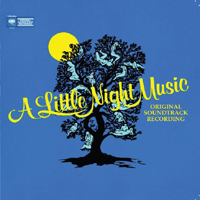 Film Soundtrack, 1977 (Columbia/Sony)
Film Soundtrack, 1977 (Columbia/Sony)  (4 / 5) A film that might have been beautiful was botched due to poor direction (by Hal Prince, who had helmed the original Broadway production of A Little Night Music but was not known as a film director) and other major flaws, most notably the casting of Elizabeth Taylor as Desirée. The movie was also sabotaged by moving the action from Sweden to Vienna, Austria, with some of the characters renamed to conform to the new locale. (Given this score’s many waltzes, the switch to Vienna may not sound like a bad idea, but it just doesn’t work.) The film does include a brilliant new version of “The Glamorous Life” for Fredrika, winsomely sung by Elaine Tomkinson (dubbing for Chloe Franks), but since that track is now to be found as a bonus item on the original Broadway album, you don’t need to buy the soundtrack recording to get it. Weirdly, Tomkinson also dubs Anne Egerman’s songs for Lesley-Anne Down. She does a fine job in both cases, but the fact that one singer ghosts two separate roles indicates how misguided the film is in general. Taylor’s rendition of “Send in the Clowns” is better than expected; her singing voice is fragile, but that arguably adds to the character’s emotional vulnerability as expressed in this famous, beautiful song. (Taylor’s singing is also dubbed by Elaine Tomkinson in the rewritten opening number, “Love Takes Time” and, it seems, for Desirée’s final line in “You Must Meet My Wife.”) A major plus here is Diana Rigg, a fabulous Charlotte. Not only does she act the character’s songs more fully than those who preceded her in the role, Rigg sings them better, too. Len Cariou and Laurence Guittard recreate their original roles but rein in their big voices for the film medium, so you’ll probably enjoy them more on the Broadway recording. Carl-Magnus’s “In Praise of Women” was cut from the movie and is not included on this album; among the other great songs missing here are “Liaisons” and “The Miller’s Son.” Gingold is back once again as Mme. Armfeldt, but with “Liaisons” gone, she doesn’t have much to do. — M.P.
(4 / 5) A film that might have been beautiful was botched due to poor direction (by Hal Prince, who had helmed the original Broadway production of A Little Night Music but was not known as a film director) and other major flaws, most notably the casting of Elizabeth Taylor as Desirée. The movie was also sabotaged by moving the action from Sweden to Vienna, Austria, with some of the characters renamed to conform to the new locale. (Given this score’s many waltzes, the switch to Vienna may not sound like a bad idea, but it just doesn’t work.) The film does include a brilliant new version of “The Glamorous Life” for Fredrika, winsomely sung by Elaine Tomkinson (dubbing for Chloe Franks), but since that track is now to be found as a bonus item on the original Broadway album, you don’t need to buy the soundtrack recording to get it. Weirdly, Tomkinson also dubs Anne Egerman’s songs for Lesley-Anne Down. She does a fine job in both cases, but the fact that one singer ghosts two separate roles indicates how misguided the film is in general. Taylor’s rendition of “Send in the Clowns” is better than expected; her singing voice is fragile, but that arguably adds to the character’s emotional vulnerability as expressed in this famous, beautiful song. (Taylor’s singing is also dubbed by Elaine Tomkinson in the rewritten opening number, “Love Takes Time” and, it seems, for Desirée’s final line in “You Must Meet My Wife.”) A major plus here is Diana Rigg, a fabulous Charlotte. Not only does she act the character’s songs more fully than those who preceded her in the role, Rigg sings them better, too. Len Cariou and Laurence Guittard recreate their original roles but rein in their big voices for the film medium, so you’ll probably enjoy them more on the Broadway recording. Carl-Magnus’s “In Praise of Women” was cut from the movie and is not included on this album; among the other great songs missing here are “Liaisons” and “The Miller’s Son.” Gingold is back once again as Mme. Armfeldt, but with “Liaisons” gone, she doesn’t have much to do. — M.P.
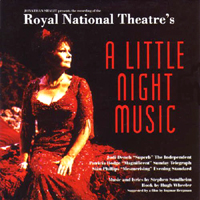 Royal National Theatre Cast, 1995 (Tring)
Royal National Theatre Cast, 1995 (Tring)  (2 / 5) This recording features two major, controversial additions to the score: Fredrika’s extended solo version of “The Glamorous Life,” a highlight of the Night Music film, and Charlotte’s “My Husband the Pig,” which was cut from the show before it opened on Broadway. Trying to shove these songs into the show score is questionable to begin with, and it’s done here with a consummate lack of skill. Fredrika’s “Glamorous Life” is broken up into sections that are interrupted by bits of the original version sung by Desirée, Madame Armfeldt, and the Liebeslieder singers, while “My Husband the Pig” is stuck into the middle of Carl-Magnus’s “In Praise of Women.” It’s surprising that Sondheim allowed any of this; the “Glamorous Life” conglomeration, in particular, is hard to listen to because it contains several bizarre modulations of key. The best thing about this album is Judi Dench, stellar in the role of Desirée. Her performance of “Send in the Clowns” is truly special, most noteworthy for the bitterness and anger that she stresses in the song’s mix of emotions. Laurence Guittard, the original Count Carl-Magnus, has here graduated to the role of Frederik, which he sings very well, while Carl-Magnus is capably sung by Lambert Wilson. Other accomplished principals are Joanna Riding as Anne, Patrica Hodge as Charlotte, Issy van Randwyck as Petra, and Siân Phillips as Mme. Armfeldt. The fly in the ointment is Brendan O’Hea as Henrik, screaming the high notes that are so beautifully rendered by Mark Lambert on the original Broadway cast album. — M.P.
(2 / 5) This recording features two major, controversial additions to the score: Fredrika’s extended solo version of “The Glamorous Life,” a highlight of the Night Music film, and Charlotte’s “My Husband the Pig,” which was cut from the show before it opened on Broadway. Trying to shove these songs into the show score is questionable to begin with, and it’s done here with a consummate lack of skill. Fredrika’s “Glamorous Life” is broken up into sections that are interrupted by bits of the original version sung by Desirée, Madame Armfeldt, and the Liebeslieder singers, while “My Husband the Pig” is stuck into the middle of Carl-Magnus’s “In Praise of Women.” It’s surprising that Sondheim allowed any of this; the “Glamorous Life” conglomeration, in particular, is hard to listen to because it contains several bizarre modulations of key. The best thing about this album is Judi Dench, stellar in the role of Desirée. Her performance of “Send in the Clowns” is truly special, most noteworthy for the bitterness and anger that she stresses in the song’s mix of emotions. Laurence Guittard, the original Count Carl-Magnus, has here graduated to the role of Frederik, which he sings very well, while Carl-Magnus is capably sung by Lambert Wilson. Other accomplished principals are Joanna Riding as Anne, Patrica Hodge as Charlotte, Issy van Randwyck as Petra, and Siân Phillips as Mme. Armfeldt. The fly in the ointment is Brendan O’Hea as Henrik, screaming the high notes that are so beautifully rendered by Mark Lambert on the original Broadway cast album. — M.P.
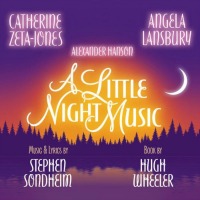 Broadway Cast, 2009 (PS Classics, 2CDs)
Broadway Cast, 2009 (PS Classics, 2CDs)  (1 / 5) While this recording is mostly unsatisfactory in its own right, by no means does it make clear just how far off the mark was the 2009 Broadway revival of A Little Night Music, disastrously misdirected by Trevor Nunn. The visual component of Nunn’s staging is, of course, absent here, nor are we subjected to David Farley’s all-wrong scenic design. The tiny “orchestra” heard on the album, though still completely inadequate for Sondheim’s glorious score, is slightly augmented in size from the pitifully minuscule group that was employed at the Walter Kerr Theatre for this production, and the general inwardness of the cast’s performances is less damaging on the recording than it was live; listen, for example, to Catherine Zeta-Jones’ and Alexander Hanson’s hyper-intimate reading of the Desirée-Frederik dialogue scene before “Send in the Clowns.” Even the one piece of miscasting among the leads, Aaron Lazar as Carl-Magnus, isn’t a major problem here, because he was wrong for the role more in terms of physical than vocal type. Somehow holding their heads above water, Zeta-Jones, Erin Davie, and Leigh Ann Larkin are quite good overall as Desirée, Charlotte, and Petra respectively, while the great Angela Lansbury is one of the best-ever Mme. Armfeldts, her performance here helped by the inclusion of so much dialogue on the recording. Faring less well due to Nunn’s misguidance is Ramona Mallory with a weird characterization of Anne, although the beauty of her singing voice is happily very much in evidence. (Ramona is the daughter of Victoria Mallory and Mark Lambert, the original Broadway Anne and Henrik.) There are sections of Henrik’s music in which Hunter Ryan Herdlicka demonstrates that he does have the vocal chops for the role, so it’s a pity that he delivers the high notes in “Later” and “A Weekend in the Country” in a blaring straight tone, presumably for “effect.” That choice may have been foisted upon Herdlicka by Nunn or by musical director Tom Murray, whose leadership is lacking in that he permits or encourages the cast members to futz with phrasing and to indulge in a fair amount of speak-singing — always a big mistake in a Sondheim score. The Liebeslieder singers have gorgeous voices, and once past the somnolent beginning of the “Night Waltz” that opens the recording, they sound wonderful throughout. — M.P.
(1 / 5) While this recording is mostly unsatisfactory in its own right, by no means does it make clear just how far off the mark was the 2009 Broadway revival of A Little Night Music, disastrously misdirected by Trevor Nunn. The visual component of Nunn’s staging is, of course, absent here, nor are we subjected to David Farley’s all-wrong scenic design. The tiny “orchestra” heard on the album, though still completely inadequate for Sondheim’s glorious score, is slightly augmented in size from the pitifully minuscule group that was employed at the Walter Kerr Theatre for this production, and the general inwardness of the cast’s performances is less damaging on the recording than it was live; listen, for example, to Catherine Zeta-Jones’ and Alexander Hanson’s hyper-intimate reading of the Desirée-Frederik dialogue scene before “Send in the Clowns.” Even the one piece of miscasting among the leads, Aaron Lazar as Carl-Magnus, isn’t a major problem here, because he was wrong for the role more in terms of physical than vocal type. Somehow holding their heads above water, Zeta-Jones, Erin Davie, and Leigh Ann Larkin are quite good overall as Desirée, Charlotte, and Petra respectively, while the great Angela Lansbury is one of the best-ever Mme. Armfeldts, her performance here helped by the inclusion of so much dialogue on the recording. Faring less well due to Nunn’s misguidance is Ramona Mallory with a weird characterization of Anne, although the beauty of her singing voice is happily very much in evidence. (Ramona is the daughter of Victoria Mallory and Mark Lambert, the original Broadway Anne and Henrik.) There are sections of Henrik’s music in which Hunter Ryan Herdlicka demonstrates that he does have the vocal chops for the role, so it’s a pity that he delivers the high notes in “Later” and “A Weekend in the Country” in a blaring straight tone, presumably for “effect.” That choice may have been foisted upon Herdlicka by Nunn or by musical director Tom Murray, whose leadership is lacking in that he permits or encourages the cast members to futz with phrasing and to indulge in a fair amount of speak-singing — always a big mistake in a Sondheim score. The Liebeslieder singers have gorgeous voices, and once past the somnolent beginning of the “Night Waltz” that opens the recording, they sound wonderful throughout. — M.P.
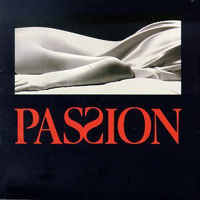 Original Broadway Cast, 1994 (Angel)
Original Broadway Cast, 1994 (Angel)  (3 / 5) One of Stephen Sondheim’s most daring achievements, Passion is also one of his most divisive: Some people respond to the work’s uncompromising nature, while others find its story off-putting from beginning to end. Nevertheless, the score is committed and, yes, passionate. With a book by James Lapine, the show is based on Ettore Scola’s 1981 film Passione d’Amore, which was adapted from Igino Ugo Tarchetti’s 1869 novel Fosca. It concerns an Italian military officer named Giorgio who is obsessively pursued by and eventually falls in love with an unattractive, infirm woman named Fosca — much to the chagrin of his lover, the already-married Clara. While many of the show’s situations border on the melodramatic, there’s a brutal honesty about the characters’ actions and feelings that gives Passion just the bite and heat it needs. The recording runs under an hour, and omits much music and dialogue, but what’s included is lush and heavily emotional. These songs embrace or suffocate you as they define every facet of the intertwining relationships at the musical’s core. Jere Shea (Giorgio), Donna Murphy (Fosca), and Marin Mazzie (Clara) give rich performances, pulsing with blood and full of heart. Murphy, in particular, brings a startling intensity to her every spoken and beautifully sung word. The supporting cast members have little to do, but both Gregg Edelman as Fosca’s cousin and Tom Aldredge as a military doctor are fine. — Matthew Murray
(3 / 5) One of Stephen Sondheim’s most daring achievements, Passion is also one of his most divisive: Some people respond to the work’s uncompromising nature, while others find its story off-putting from beginning to end. Nevertheless, the score is committed and, yes, passionate. With a book by James Lapine, the show is based on Ettore Scola’s 1981 film Passione d’Amore, which was adapted from Igino Ugo Tarchetti’s 1869 novel Fosca. It concerns an Italian military officer named Giorgio who is obsessively pursued by and eventually falls in love with an unattractive, infirm woman named Fosca — much to the chagrin of his lover, the already-married Clara. While many of the show’s situations border on the melodramatic, there’s a brutal honesty about the characters’ actions and feelings that gives Passion just the bite and heat it needs. The recording runs under an hour, and omits much music and dialogue, but what’s included is lush and heavily emotional. These songs embrace or suffocate you as they define every facet of the intertwining relationships at the musical’s core. Jere Shea (Giorgio), Donna Murphy (Fosca), and Marin Mazzie (Clara) give rich performances, pulsing with blood and full of heart. Murphy, in particular, brings a startling intensity to her every spoken and beautifully sung word. The supporting cast members have little to do, but both Gregg Edelman as Fosca’s cousin and Tom Aldredge as a military doctor are fine. — Matthew Murray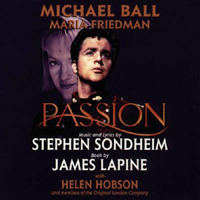 Original London Cast, 1997 (First Night)
Original London Cast, 1997 (First Night)  (3 / 5) This recording is almost 20 minutes longer than the Broadway album, containing more music as well as dialogue, but both are roughly equal in terms of performance quality. Maria Friedman’s Fosca is more strident than Donna Murphy’s; her portrayal is not as well layered and, therefore, is less sympathetic. Michael Ball brings a raw sexual energy to the role of Giorgio. Helen Hobson, as Clara, presents a casting problem: She seems harsh, cold, and false in her declarations of love for Giorgio, which somewhat reduces the overall effect of the piece. But, in supporting roles, Hugh Ross and Paul Bentley sound more dynamic than their New York counterparts. Fans of Passion will want to have both the Broadway cast album and this one. — M.M.
(3 / 5) This recording is almost 20 minutes longer than the Broadway album, containing more music as well as dialogue, but both are roughly equal in terms of performance quality. Maria Friedman’s Fosca is more strident than Donna Murphy’s; her portrayal is not as well layered and, therefore, is less sympathetic. Michael Ball brings a raw sexual energy to the role of Giorgio. Helen Hobson, as Clara, presents a casting problem: She seems harsh, cold, and false in her declarations of love for Giorgio, which somewhat reduces the overall effect of the piece. But, in supporting roles, Hugh Ross and Paul Bentley sound more dynamic than their New York counterparts. Fans of Passion will want to have both the Broadway cast album and this one. — M.M.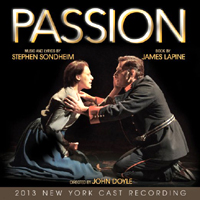 Off-Broadway Cast, 2013 (PS Classics)
Off-Broadway Cast, 2013 (PS Classics)  (3 / 5) The uncountable problems that plagued John Doyle’s 2013 Off-Broadway production of Passion matter far less on this recording than they did in the theater. Ryan Silverman and Judy Kuhn embrace their inner smoldering as Giorgio and Fosca, turning out performances of tangible if not expansive feeling that sell all the basic emotions at the musical’s heart. Though we get rather less fire and urgency than on the OBCR, their interpretations work given the generally pulled-back atmosphere of the proceedings, and Jonathan Tunick’s smart reductions of his own original charts (carefully conducted by Rob Berman) are in line with an appropriately intimate experience. The characterizations of the supporting cast, including Stephen Bogardus as the Colonel and Tom Nelis as the Doctor, are understated, but not destructively so. Rebecca Luker, who for the recording spelled the sidelined-by-illness third star, Melissa Errico, sounds older and more distant than Silverman and Kuhn, which results in a wobblier-than-ideal love triangle. Still, a bomb of a revival producing a reasonably persuasive recording is an achievement worthy of note by understandably incredulous Sondheim fans. — M.M.
(3 / 5) The uncountable problems that plagued John Doyle’s 2013 Off-Broadway production of Passion matter far less on this recording than they did in the theater. Ryan Silverman and Judy Kuhn embrace their inner smoldering as Giorgio and Fosca, turning out performances of tangible if not expansive feeling that sell all the basic emotions at the musical’s heart. Though we get rather less fire and urgency than on the OBCR, their interpretations work given the generally pulled-back atmosphere of the proceedings, and Jonathan Tunick’s smart reductions of his own original charts (carefully conducted by Rob Berman) are in line with an appropriately intimate experience. The characterizations of the supporting cast, including Stephen Bogardus as the Colonel and Tom Nelis as the Doctor, are understated, but not destructively so. Rebecca Luker, who for the recording spelled the sidelined-by-illness third star, Melissa Errico, sounds older and more distant than Silverman and Kuhn, which results in a wobblier-than-ideal love triangle. Still, a bomb of a revival producing a reasonably persuasive recording is an achievement worthy of note by understandably incredulous Sondheim fans. — M.M.

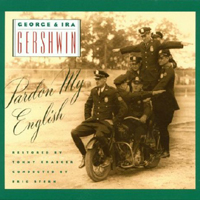
 (4 / 5) Pardon My English, the 1933 musical that had the shortest Broadway run of any Gershwin show, makes for a most entertaining recording. The wonderful songs are mostly unfamiliar, but Eric Stern’s conducting is lively, and the original orchestrations sound strong rather than distractingly antique. The show has a troubled history: After a hellish gestation during which the original cast members quickly departed, Pardon My English was totally rewritten by Herbert Fields and Morrie Ryskind. Then Ryskind decamped, as well. Jack MacGowan, who had scripted Girl Crazy, came in and did last-minute doctoring just before the New York opening. Of course, George and Ira Gershwin had to do considerable jiggering of the score to suit the revised plot and characters. Although the story makes little sense, the songs are delightful. “Isn’t It a Pity?” is certainly the best of them, but obscure numbers such as “Where You Go, I Go” and “I’ve Got to Be There” are as enjoyable as some of the Gershwin gems you’ve been listening to and loving all your life. There are also a few “lyric fun” songs: “Freud and Jung and Adler,” “He’s Oversexed,” and “My Cousin in Milwaukee.” The first-rate cast of this recording is headed by John Cullum, William Katt, Arnetia Walker, and Michelle Nicastro. — David Wolf
(4 / 5) Pardon My English, the 1933 musical that had the shortest Broadway run of any Gershwin show, makes for a most entertaining recording. The wonderful songs are mostly unfamiliar, but Eric Stern’s conducting is lively, and the original orchestrations sound strong rather than distractingly antique. The show has a troubled history: After a hellish gestation during which the original cast members quickly departed, Pardon My English was totally rewritten by Herbert Fields and Morrie Ryskind. Then Ryskind decamped, as well. Jack MacGowan, who had scripted Girl Crazy, came in and did last-minute doctoring just before the New York opening. Of course, George and Ira Gershwin had to do considerable jiggering of the score to suit the revised plot and characters. Although the story makes little sense, the songs are delightful. “Isn’t It a Pity?” is certainly the best of them, but obscure numbers such as “Where You Go, I Go” and “I’ve Got to Be There” are as enjoyable as some of the Gershwin gems you’ve been listening to and loving all your life. There are also a few “lyric fun” songs: “Freud and Jung and Adler,” “He’s Oversexed,” and “My Cousin in Milwaukee.” The first-rate cast of this recording is headed by John Cullum, William Katt, Arnetia Walker, and Michelle Nicastro. — David Wolf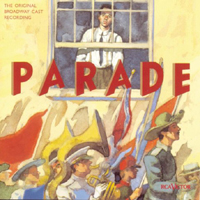
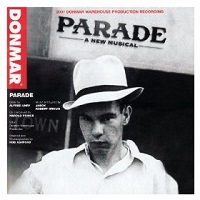
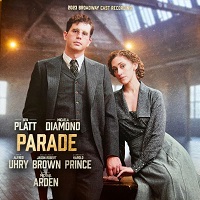
 (5 / 5)
(5 / 5) 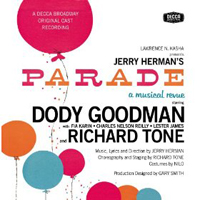
 (2 / 5) This topical revue served as a calling card for a young composer-lyricist named Jerry Herman. It remains a pleasant diversion if you’re in the right mood. By 1960, Herman’s remarkable facility for songwriting was fully in place — although it’s a little disorienting to hear the melody of “Show Tune,” later used for “It’s Today” in Mame, and an overture passage that was recycled for “I Want to Make the World Laugh” in Mack & Mabel. Dody Goodman and Charles Nelson Reilly deliver the comedy material, including the notably dirty “Save the Village,” in which Goodman protests shutting down the Women’s House of Detention on Sixth Avenue (“There’s love in the laundry / There’s love in the showers / There’s love in the clinic”); “Confession to a Park Avenue Mother,” in which Reilly shamefacedly admits loving a girl from the West Side; “Maria in Spats,” about Maria Callas’s banishment from the Metropolitan Opera (“Why can’t I play the Palace / If Judy can play the Met?”); and “Jolly Theatrical Season,” which spoofs flop shows. The uneven but generally enjoyable ballads are handled by big-voiced unknowns Lester James, Fia Karin, and the astonishing Richard Tone, who has one number only: “Two a Day,” a salute to vaudeville that brings down the house even on disc. — David Barbour
(2 / 5) This topical revue served as a calling card for a young composer-lyricist named Jerry Herman. It remains a pleasant diversion if you’re in the right mood. By 1960, Herman’s remarkable facility for songwriting was fully in place — although it’s a little disorienting to hear the melody of “Show Tune,” later used for “It’s Today” in Mame, and an overture passage that was recycled for “I Want to Make the World Laugh” in Mack & Mabel. Dody Goodman and Charles Nelson Reilly deliver the comedy material, including the notably dirty “Save the Village,” in which Goodman protests shutting down the Women’s House of Detention on Sixth Avenue (“There’s love in the laundry / There’s love in the showers / There’s love in the clinic”); “Confession to a Park Avenue Mother,” in which Reilly shamefacedly admits loving a girl from the West Side; “Maria in Spats,” about Maria Callas’s banishment from the Metropolitan Opera (“Why can’t I play the Palace / If Judy can play the Met?”); and “Jolly Theatrical Season,” which spoofs flop shows. The uneven but generally enjoyable ballads are handled by big-voiced unknowns Lester James, Fia Karin, and the astonishing Richard Tone, who has one number only: “Two a Day,” a salute to vaudeville that brings down the house even on disc. — David Barbour
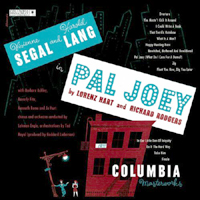

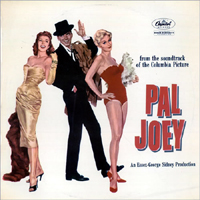
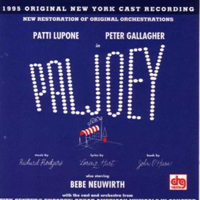
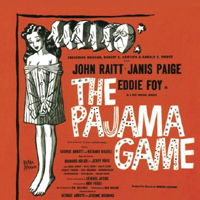
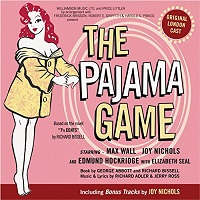
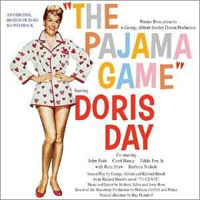
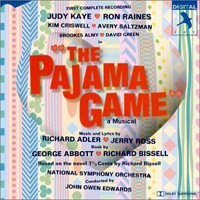
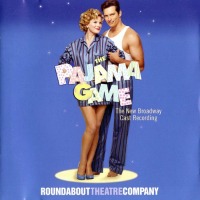
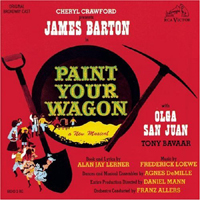
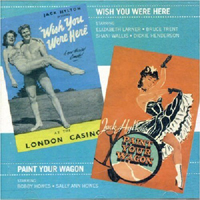
 (1 / 5) It sounds like ideal casting: the lovable British comic Bobby Howes as Ben Rumson and his up-and-coming daughter Sally Ann Howes as Ben’s daughter, Jennifer. But this cast album shows neither performer at best advantage. The recording is in medley form — one chorus each of such songs as “All for Him” and “There’s a Coach Comin’ In” — and adds up to barely 13 minutes. Sally Ann Howes sounds a little raw, with stilted line readings and uncertain top notes. As her love interest, Ken Cantril is off pitch and doesn’t sound remotely Mexican. The one selling point is some tasty dialogue not heard on the Broadway album. (Note: The Sepia CD compilation includes selections from Wish You Were Here and Guys and Dolls as performed by members of the original London casts of those shows.) — M.M.
(1 / 5) It sounds like ideal casting: the lovable British comic Bobby Howes as Ben Rumson and his up-and-coming daughter Sally Ann Howes as Ben’s daughter, Jennifer. But this cast album shows neither performer at best advantage. The recording is in medley form — one chorus each of such songs as “All for Him” and “There’s a Coach Comin’ In” — and adds up to barely 13 minutes. Sally Ann Howes sounds a little raw, with stilted line readings and uncertain top notes. As her love interest, Ken Cantril is off pitch and doesn’t sound remotely Mexican. The one selling point is some tasty dialogue not heard on the Broadway album. (Note: The Sepia CD compilation includes selections from Wish You Were Here and Guys and Dolls as performed by members of the original London casts of those shows.) — M.M.